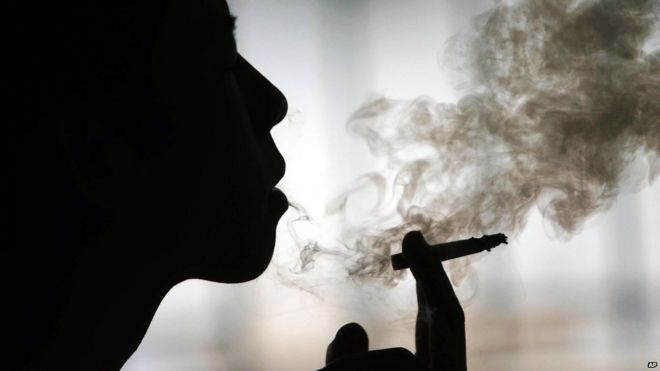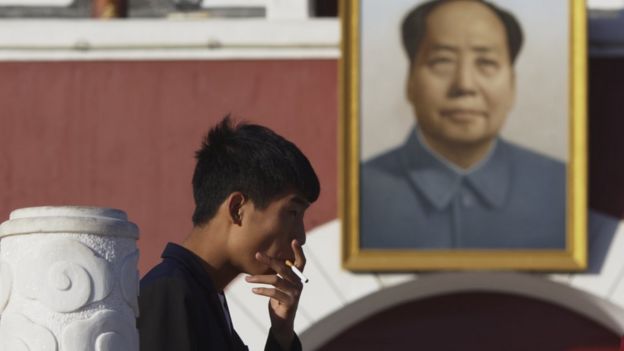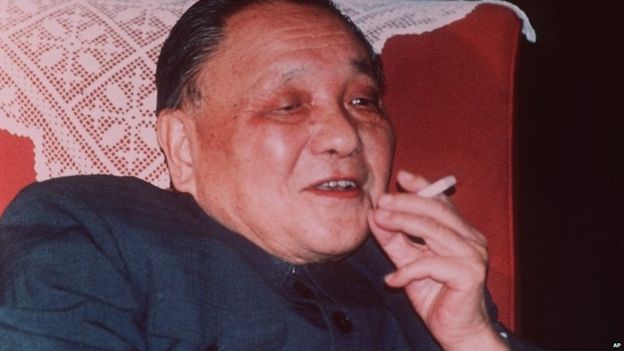China and cigarettes: The country that won't quit
- 9 October 2015
 AP
AP
"Don't smoke! It's killing me!" was a warning my father repeatedly told me as I grew up.
I listened, yet my father only quit a few years ago, at the age of 70, after a lifetime of smoking. He says it is a miracle.
It is almost standard for a man of my father's generation to smoke. A common greeting among men is to offer a cigarette. A carton of cigarettes is a popular networking gift.
It seems without a cigarette, one cannot start a conversation. Declining an offer of a cigarette is seen as a mark of losing face. It is custom for a subordinate to light up for his boss.
While health warnings and graphic pictures are shown on cigarette packets in some western countries, in China, the packet is almost like a canvas, showcasing art and Chinese calligraphy.
 AP
AP
Cigarette boxes made of leather and black wood embossed with figures or studded with diamonds are status symbols.
Smokers have been baffled with numerous brands in China. Many provinces and big cities have a handful of flagship brands, manufactured by local companies - for example, Yellow Crane Tower is the best known brand from central China's Hubei province, while Zhongnanhai is associated with Beijing.
Local brands of cigarettes are often seen as a province's flagship product and many people like to buy local cigarettes as gifts when they travel.
While a cheap pack costs just 2.5 yuan ($0.4; £0.25), a high end brand is 100 times more expensive.
The so-called special brands for state leaders are the most coveted - for example, Panda cigarettes were the favourite of former leader Deng Xiaoping, who was known for chain smoking - and Panda produced special premium cigarettes for him.
 AP
AP
Recently, a housing official got into hot water after a sharp-eyed blogger caught him putting $22-a-pack cigarettes on the table in front of him during a meeting, and quickly questioned how he could afford such expensive goods.
The official was later fired for corruption charges. China banned smoking in all public indoor spaces in 2011, but it is a common scene to see someone smoking under a "No Smoking" sign.
As China gets rich, offering a cigarette is no longer a standard greeting. But the country is no less shrouded in smoke.
Surveys indicate there are 50 million young smokers and the rate of young students smoking has increased.
Also, 80% of under 18-year-olds says they have never been challenged when purchasing a pack.
Experts blame the advertisers and the entertainment industry for glorifying smoking and depicting it as a symbol of maturity and independence.







No comments:
Post a Comment
Please leave a comment-- or suggestions, particularly of topics and places you'd like to see covered